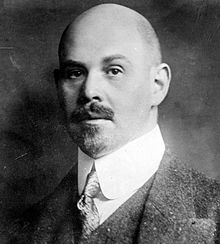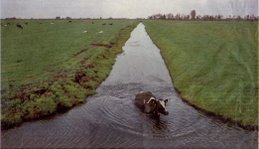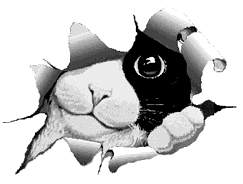Nuremberg U-Bahn station "Walther-Rathenau-Platz, 6 März 2010 Photo: tofoto
About the prohibition on thinking, avoiding the taboo of comparisons, see:
Holy Adolf. Is it possible to compare Bush with Hitler?;
An analogy is no comparison;
Comparisons with the Nazis; Uri Avnery;
Comparison, based on any knowledge
T: I: S, (Steinberg Recherche, March 8, 2010.
(All in German)With thanks to Claudia Karas, the indefatigable Mailerin. And Steinberg, a monument of -often too- Critical Criticism)
 Walther Rathenau was a philosopher, businessman and minister of foreign affairs in the early Weimar Republic. He was also a Jew.He would now be classified as a Liberal Conservative or a right Social Democrat. All the same, many reasons for revanchists, anti-Semites, PI-ler, Mafiosis und Ulfkotte-people to hate him. So much so that he was murdered in 1922 by three so-called Fememörderern with a hand grenade.
Walther Rathenau was a philosopher, businessman and minister of foreign affairs in the early Weimar Republic. He was also a Jew.He would now be classified as a Liberal Conservative or a right Social Democrat. All the same, many reasons for revanchists, anti-Semites, PI-ler, Mafiosis und Ulfkotte-people to hate him. So much so that he was murdered in 1922 by three so-called Fememörderern with a hand grenade. He makes the difference between predetermined conclusions from superficial analogies from history (or the collective memories) on one hand and, on the other hand, the enlightened thinking, not the based upon stories attached to prejudice, but engaged to comparison with what is now happening. Stating:
Denken heißt Vergleichen In short: To think is to compareWhat we get to hear now too often in the debates about the supposedly necessary exclusion of potential terrorists and enemies of the Enlightenment in "our West", are the prejudiced conclusions of "the" History.
But, THE history does not exist. Only stories do exist. Narratives that communicate what people think or thought that woul be important.
One can make two things out of stories.
- To use them, to support any ideas or theories;
- To study them, in order to, in comparison with perceptions of current or historical events, create a better analysis.
Teaching about the Holocaust is often understood as a canonization of all this, what is said in the name of Judaism and the actual Israeli Government. But real Holocaust Education not only speaks of the suffering of millions of murdered Jews, but informs just as much about the construction of the will to genocide. Thus, of the tendency of acting by irritation and xenophobia.
Stories about it are from all ages. The Holocaust story is "just" its translation into the industrial age of former pogroms and primitive ethnic cleansings. The First World War sacrificed millions instead of tens of thousands, as we were used to before, as it was an expression of the new industrial age.
The second leads to free thinking about the ways, exclusion develops.It may be helpful to understand today's exclusion and their reasons. Good Holocaust education thus helps to understand how ideas about genocide do devlop themselves within a non-violent society..
That is why I think that critical historical studies are of importance. Also for Muslim immigrant children in Germany, Switzerland and Austria. They will understand that the Holocaust story is not about a so-called collective guilt of Germans and Muslims, but see it as awarning, never to follow extremists.
And take seriously the warnings of the day.
Technorati Tags: Facing History , Genesis of Genocide , Walther Rathenau , Steinbergrecherche , Education , Political Philosophy




1 comment:
They will understand that the Holocaust story is not about a so-called collective guilt of Germans and Musli
beautiful
Post a Comment